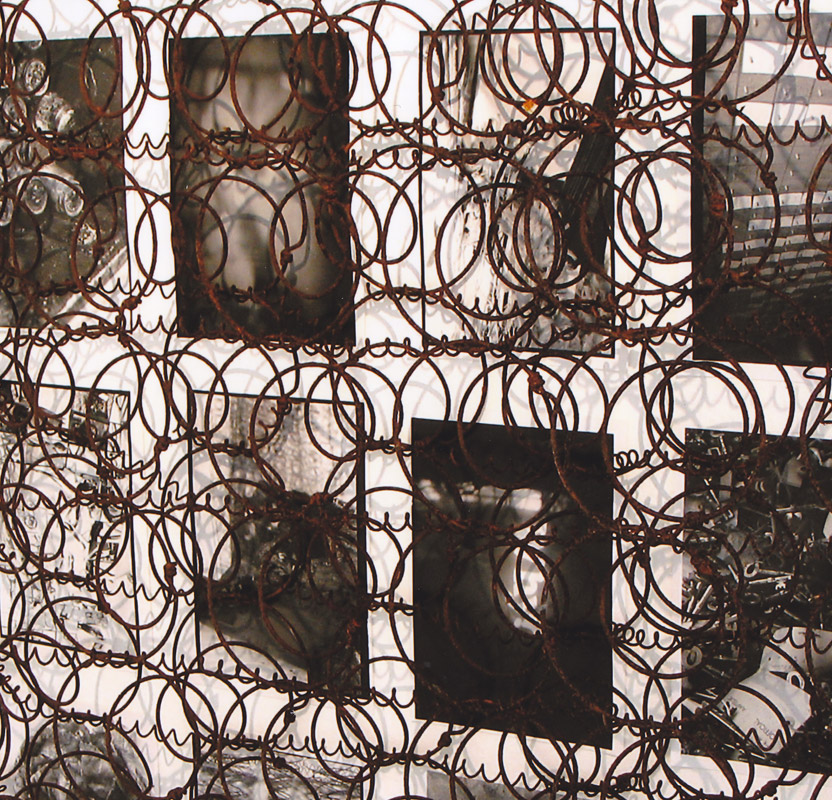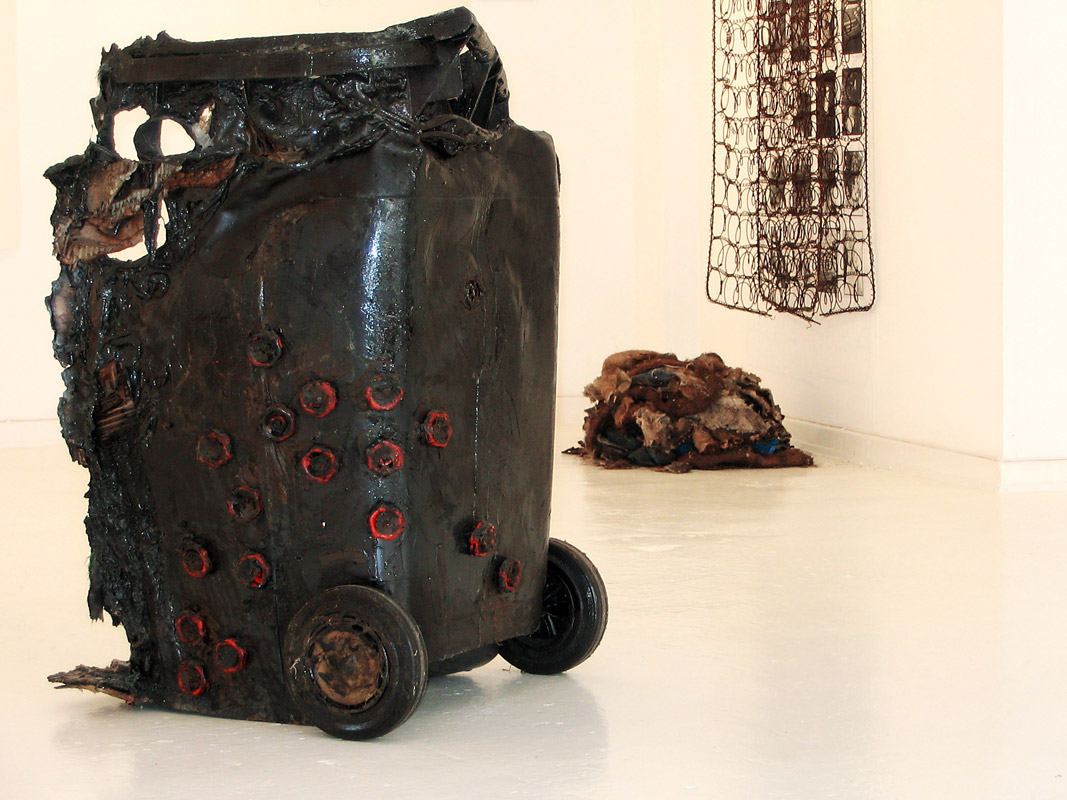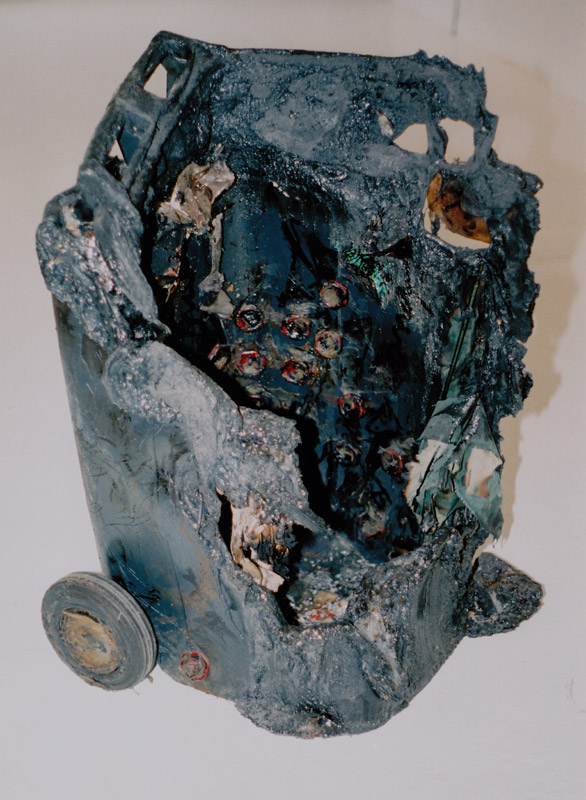
















Joao Ferreira Gallery
Ordinary objects have hidden lives that are not apparent when found in their original environments. When these objects have reached their expiry dates and their usage has come to an end, they are destined for the junk or scrap metal yard, or take on new meaning as objets d’art.
In RE-CON-TEXT, De Wet alters the appearance of objects to challenge institutionalised perceptions about them. New meaning is revealed by concealing the original meaning. By tracing and documenting the histories of found objects, such as domestic furniture and appliances, De Wet attempts to draw analogies and parallels between the original use of objects and their potential as carriers of meaning despite their obsolescence.
For example, heaped mattresses marked “Condemned” in a psychiatric hospital could tell the silent tale of hundreds of ‘condemned’ souls. What once provided warmth and comfort reflects society’s neglect of those on the periphery, and reveals the discomfort, responsibility, and guilt felt when faced with the avoidance thereof.
RE-CON-TEXT explores the possibility that an object could have multiple meanings. When one element is removed from the whole, the character of the remaining parts of the object changes. In the case of the mattress, while springs gave support and comfort to the sleeper, their harsh materiality and potential to cause pain or discomfort is revealed when their cover is removed. Similarly, a burnt-out, scorched heater gives new meaning to the energy that previously powered it; that which originally gave the heater life also caused its death.
Such found objects, manipulated as works of art in their own right, are the basis and inspiration for the mixed media works in RE-CON-TEXT. These pieces are supplemented by photographs and drawings in this body of work.